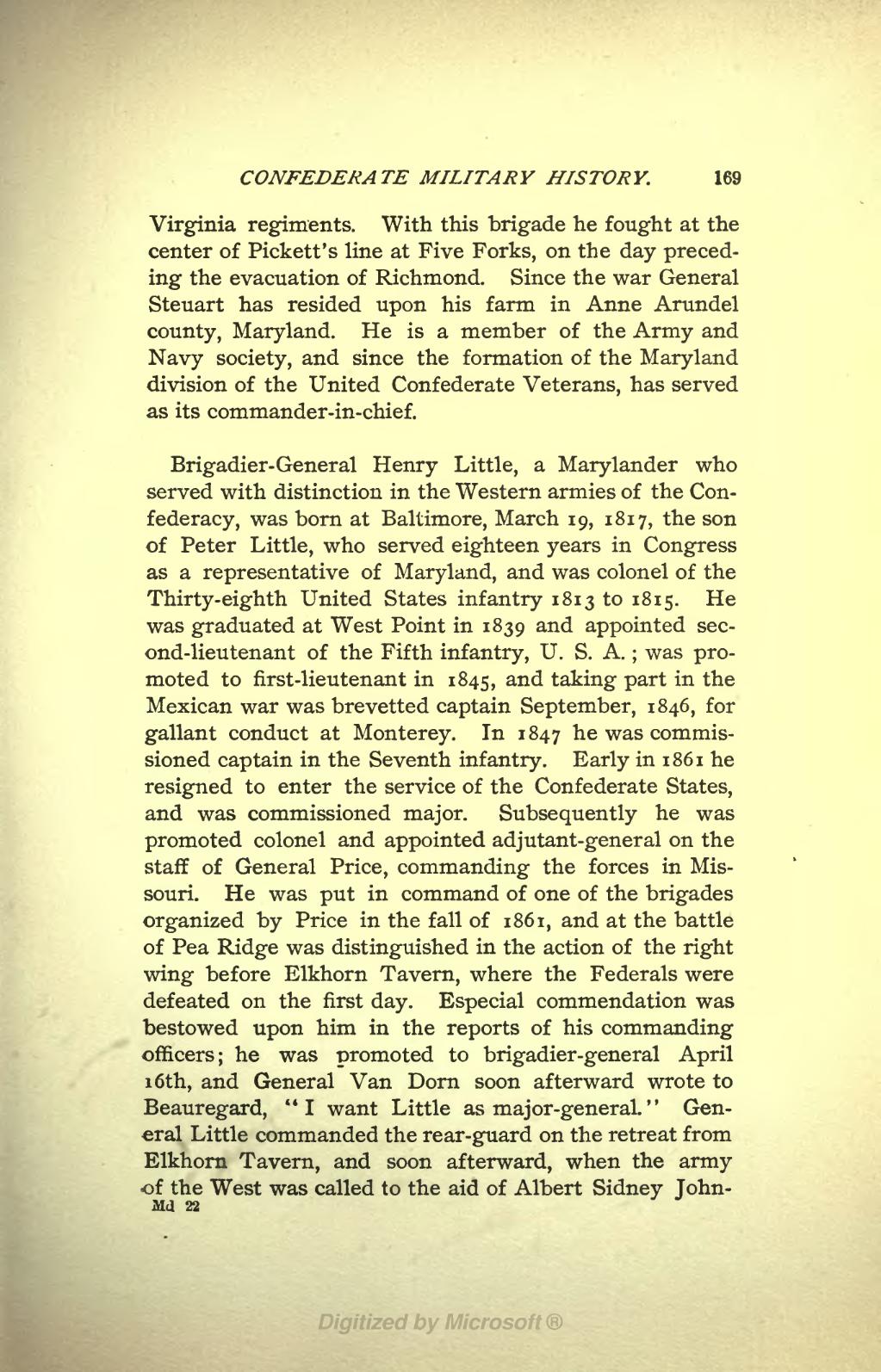Virginia regiments. With this brigade he fought at the center of Pickett's line at Five Forks, on the day preceding the evacuation of Richmond. Since the war General Steuart has resided upon his farm in Anne Arundel county, Maryland. He is a member of the Army and Navy society, and since the formation of the Maryland division of the United Confederate Veterans, has served as its commander-in-chief.
Brigadier-General Henry Little, a Marylander who served with distinction in the Western armies of the Confederacy, was born at Baltimore, March 19, 1817, the son of Peter Little, who served eighteen years in Congress as a representative of Maryland, and was colonel of the Thirty-eighth United States infantry 1813 to 1815. He was graduated at West Point in 1839 and appointed second-lieutenant of the Fifth infantry, U. S. A.; was promoted to first-lieutenant in 1845, and taking part in the Mexican war was brevetted captain September, 1846, for gallant conduct at Monterey. In 1847 he was commissioned captain in the Seventh infantry. Early in 1861 he resigned to enter the service of the Confederate States, and was commissioned major. Subsequently he was promoted colonel and appointed adjutant-general on the staff of General Price, commanding the forces in Missouri. He was put in command of one of the brigades organized by Price in the fall of 1861, and at the battle of Pea Ridge was distinguished in the action of the right wing before Elkhorn Tavern, where the Federals were defeated on the first day. Especial commendation was bestowed upon him in the reports of his commanding officers; he was promoted to brigadier-general April 16th, and General Van Dorn soon afterward wrote to Beauregard, "I want Little as major-general. " General Little commanded the rear-guard on the retreat from Elkhorn Tavern, and soon afterward, when the army of the West was called to the aid of Albert Sidney John-
